From the Diary of Anne Frank NCERT Solutions | English Class 10 PDF Download
| Table of contents |

|
| Let’s Begin |

|
| Reading Comprehension |

|
| Vocabulary |

|
| Grammar |

|
| Editing |

|
| Listening |

|
| Speaking |

|
| Writing |

|
| Project |

|
| Do You Know |

|
Let’s Begin
The World Wars fought in the past stand testimony to the fact that fighting wars brings severe human suffering. The sufferers, including women and ✓ children are left behind with trauma and indelible impressions on their minds. You have read in the Class X English textbook the account of one such war in the diary of Anne Frank who captured the miseries of war in her diary. Discuss how you may relate to Anne Frank’s feelings of alienation and isolation.
Reading Comprehension
Text – IThe following excerpt is from the diary of Lena Mukhina, a teenage girl who had undergone the atrocities of Germans when they fortified the city of Leningrad. The siege of Leningrad is an important landmark in the history of Russia. The siege of Leningrad lasted from September 1941 to 1944. The city was cut off from the rest of Russia. The Germans continuously bombarded the city which resulted in death, destruction, and starvation of the people. However, the resolute Russians were warned in the beginning that the enemy was at the gate and it was a question of life and death. They fought bravely and failed the Germans in their evil designs.
Read the excerpt and answer the questions that follow:

No one could possibly have known that the city would remain in the grip of siege for 872 days and nights. But Leningrad’s citizens had begun to feel the breath of war as early as September. Daily air raids and artillery bombardment of residential neighbourhoods drove the city’s inhabitants into bomb shelters, several times a day, and for hours at a time. People’s initial curiosity in the aftermath of the first bomb attacks soon gave way to fear and then, in conditions of appalling hunger and cold, to apathy.
Leningraders welcomed inclement weather for the reduced visibility it brought. They came to dread sunny days and moonlit nights, when the Germans would be sure to bomb their city. Cloud cover, however, offered no protection from artillery fire: in just over six months from the start of the siege there were only thirty-two days when shells did not explode on the city’s streets.
Hunger soon set in. Between September and November 1941 the bread rations that had been announced in July were reduced five times, reaching their lowest point on 20 November – 125 ‘blockade grams’ for children, dependents and white-collar workers and 250g for manual workers, technicians and engineers. Rations of meat, butter, sugar and other food items were severely reduced. The summer months and the beginning of autumn, when it was still possible to buy food without ration cards in ordinary shops and canteens were no more than a distant memory.
Q1: Infer the meanings of the following expressions. The first has been done for you as an example.
(a) to feel the breath of war: there were indications that war was going to start soon
(b) appalling hunger and cold: ___________.
(c) start of the siege: ___________.
(d) blockade grams: ___________.
Ans:
(b) the extreme conditions of hunger and inclement weather.
(c) from the beginning of the blockade; i.e., since the time blockade process started.
(d) during the seige food for people had been stipulated; no more than the stipula ted was allowed.
Q2: List the words from the: passage which are related to the war, for example ‘bombardment’.
Ans: List of words is – raid, attack, appal siege, shells, explode.
Q3: Answer the following questions:
(a) Who were the captives as stated in the above passage?
(b) Why did the people under siege welcome the bad weather conditions?
(c) What were the fears in the mind of the people?
(d) Have the people lost hope or reconciled to the existing situation?
Ans:
(a) The captives were the Leningraders, (the citizens of Leningrad)
(b) People welcomed the bad weather conditions because it brought with it reduced visibility which did not allow the Germans to locate them to bombard.
(c) The fears in the minds of the people were
- they would be bombarded to death.
- they would be starved to death as the food supply was insufficient.
(d) People neither lost hope nor reconciled to the existing situation; they fought and liberated Leningrad from the clutches of the Germans.
Q4: Tick the correct answer
‘…when it was still possible to buy food without ration cards in ordinary shops and canteens were no more than a distant memory.’ It means:
(a) There was hope of getting ration soon.
(b) Citizens under siege had to show their ration cards for buying food.
(c) There were shops and canteen for buying food for the people under siege.
(d) The possibility of buying the food without a ration card as in the past, was no more than a memory now.
Ans:
(a) X
(b) X
b X
(d) ✓
Text – II
There are many ways of recording the events, news, and personal experiences. Diary writing, logbook, daybook, journal, etc. are a few to name. The journal writing is about writing the everyday record of an event or writing about an event, activity or experience, etc
The following is an excerpt from the beginning of A Journal of the Plague Year by Daniel Defoe.

It was about the beginning of September, 1664, that I, among the rest of my neighbours, heard in ordinary discourse that the plague was returned again in Holland; for it had been very violent there, and particularly at Amsterdam and Rotterdam, in the year 1663, whither, they say, it was brought, some said from Italy, others from the Levant, among some goods which were brought home by their
Turkey fleet; others said it was brought from Candia; others from Cyprus. It mattered not from whence it came; but all agreed it was come into Holland again.
We had no such thing as printed newspapers in those days to spread rumours and reports of things, and to improve them by the invention of men, as I have lived to see practiced since. But such things as these were gathered from the letters of merchants and others who corresponded abroad, and from them were handed about by word of mouth only; so that things did not spread instantly over the whole nation, as they do now.
But it seems that the Government had a true account of it, and several councils were held about ways to prevent its coming over; but all was kept very private. Hence, it was that this rumour died off again, and people began to forget it as a thing we were very little concerned in, and that we hoped was not true; till the latter end of November or the beginning of December 1664 when two men, said to be Frenchmen, died of the plague in Long Acre, or rather at the upper end of Drury Lane.
The family they were in endeavoured to conceal it as much as possible, but as it had gotten some vent in the discourse of the neighbourhood, the Secretaries of State got knowledge of it; and concerning themselves to inquire about it, in order to be certain of the truth, two physicians and a surgeon were ordered to go to the house and make inspection. This they did; and finding evident tokens of the sickness upon both the bodies that were dead, they gave their opinions publicly that they died of the plague. Whereupon, it was given in to the parish clerk, and he also returned them to the Hall; and it was printed in the weekly bill of mortality in the usual manner, thus – Plague 2. Parishes infected 1.
Q1: The above passage is written in the English that was prevalent in the eighteenth century. Find some words and phrases from the text which seem different as compared to the English language usage at present. List them and find an appropriate substitute for each. Look at the example given below: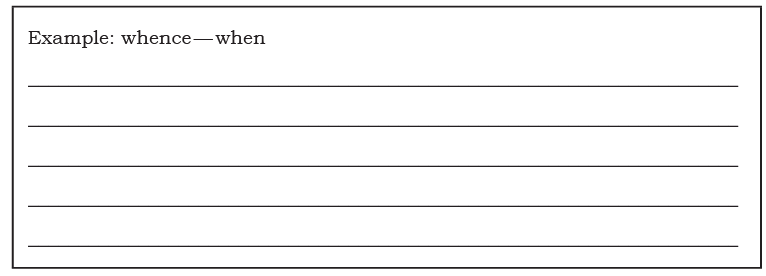
Ans:
- whither – where
- candia – crete
- practiced – practised
Q2: Answer the following questions:
(a) What is being talked about in the first paragraph of Daniel Defoe’s journal?
(b) How was news about important events circulated during those days?
(c) Why did the rumour about the plague die off?
(d) How was the news about the plague confirmed ?
Ans:
(a) That plague was returned again to Holland.
(b) News about important events were circulated through word of mouth during those days. Such things were gathered from the letters of merchants and others who corresponded abroad.
(c) The Government had a true account of plague coming over to Holland. Several councils were held about ways to prevent it but all was kept very private. Thus the rumour about it died off with passage of time.
(d) When two French men died off in 1664 in Long Acre; two physicians and a surgeon inspected their bodies and confirmed that they had died of plague.
Q3: Tick the correct answer.
‘… the weekly bill of mortality’ means:
(a) The weekly payment of dues
(b) The weekly news about the deaths
(c) The statement about the hospital expenditure issued every week
(d) The list which was issued weekly, of persons who died due to plague
Ans:
(a) x
(b) x
(c) x
b ✓
Vocabulary
Q1: Choose a word or expression that completes each of the following sentences. One has been done for you.(a) I can’t tell you the plan because I don’t know about it. (him her it them)
(b) One should learn to defend ___________ against bullies. (herself itself himself oneself)
(c) The girls ___________ were helping you were probably Rahul’s friends. (which who that they)
(d) These dresses belong to you. I am sure they are ___________. (yours your yours’ theirs)
(e) The fire caused serious ___________ to the group of houses. (damage damages injuries injury)
(f) The board was ___________ plans for the tournament.
(concerned to concerned at concern about concerned with)
Ans:
(b) oneself
(c) who
(d) yours
(e) damage
(f) concerned with
Grammar
Idiomatic expressions:
Q1: Refer to the lesson ‘From the diary of Anne Frank’ in your Class X textbook. There are some idiomatic expressions in the text.
For example:
(a) Our entire class is quaking in its boots.
Quake in (one’s) boot: to tremble with fear or nervousness
(b) Until then we keep telling each other not to lose heart.Not to lose one’s heart: not to lose hope or not to feel demoralised. Now, look at the idiomatic expressions given below. Use a dictionary to find out themeanings. Make sentences using the expressions. all’s fair in love and war icing on the cake call the shots chalk and cheese raining cats and dogs breaking the ice
Ans:
- all’s fair in love and war: In the game of love and war, no step whatsoever inhuman or cruel, can be considered improper.
- icing on the cake : an attractive but inessential addition or enhancement.
- call the shots : to take initiative in deciding how something should be done.
- chalk and cheese : fundamentally different or incompatible.
- raining cats and dogs : to rain heavily; torrential rain.
- breaking the ice : relieve tension or get conversation going at the start of a party or between strangers.
Q2: Fill in the blanks using the contracted forms of the verbs. One has been done for you.
This is a beautiful flower. Is not it ? Isn’t it?
(a) You should not eat so much. You ___________ eat so much.
(b) They have written the story. ___________ written the story.
(c) Let us go watch a movie. go ___________ watch a movie.
(d) He did not play tennis. He ___________ play tennis.
(e) I could not find my friend in the crowd. I ___________ find my friend in the crowd.
(f) Here is your bag. ___________ your bag.
(g) I would guide him. ___________ guide him.
(h) They are not rich. They ___________ rich.
Answer
(a) shouldn’
(b) They haven’t
(c) Let’s
(d) didn’t
(e) couldn’t
(f) Here’s
(g) I’d
(h) aren’t
Q3: Fill in the blanks with the phrasal verbs given below. Change the tense of the verbs wherever required.
(breakdown, find out, look for, go out, check cut)
Suhasini wanted to ___________ with her mother to the book shop. Her mother came back home very late. She said that her car on the way back. She had to a mechanic. She ___________ several apps for roadside assistance but then ___________ that her internet was not working.
Ans: go out, had broken down, look for, checked out, found out.
Editing
Q1: Read this quote from Max Muller. There are errors in the text. Find out the errors and write the correct word in the space provided“If I was asked under what sky the human mind ___________ has most fully developed some for its choicest gifts, has most deeply pondered on the greatest problems ___________ of life, and has find solutions of some of them which ___________ well deserve the attention even of them who have studied Plato and Kant, I should pointed to India. And if I were to ask me from what literature ___________ we who has been nurtured almost exclusively ___________ on the thoughts of Greeks and Romans, and of the Semitic race, the Jewish, may draw the corrective which is most wanted in order to make our inner life more perfect, ___________. more comprehensive, more universal, in fact most truly human a life… ___________ again I should point to India.” by Max Muller
Ans:
- what – which
- some – itself
- on – over
- find – found
- deserve – deserves
- kant – kent
- what- which
- has – have
- more perfect – perfecter
- human – a human
Listening
Q1: Listen to the following YouTube link on ‘The Siege of Leningrad’ and make notes in the first box. Then write a narrative account of it in the second box.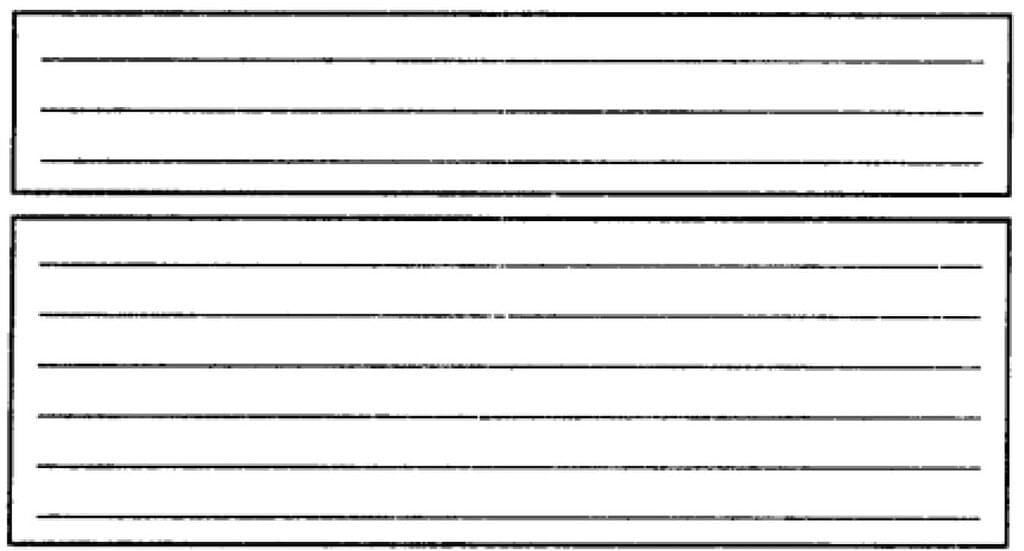
Ans:
First Box
(I) Leningrad, now known as Saint Petersberg:
- a significant Soviet city
- a centre of industrial production
- had military base for the Baltic.
(II) Operation Barbarossa’s invasion on 22nd June 1941.
- goal was to capture Leningrad.
- Field Marshal Von Leeb reached south and
- Finnish army approached North.
- Civilian prepared fortifications
- Leningrad was surroundeed; communication lines severed.
- Hitler ordered the city be starved.
- One million civilians died.
- Siege lasted for 870 days.
- The Red army repelled the Germans.
- Lifted siege in Jan 1944.
IInd Box:
Leningrad, now known as Saint Petersberg was invaded on 22nd June 1941 and captured by operation Barbarossa’s invasion. Field Marshal Von Leeb captured South and the Finnish Army, north. Civilians prepared fortifications. Leningrad was surrounded and communication lines were severed. Owing to Hitler’s order to starve the city to submission, over one million people died. The siege lasted for 870 days. In January 1944, the Red Army repelled the German forces.
Speaking
1. The following poem is taken from The Diary of Lena Mukhina.(a) Ask your teacher to recite the poem. Listen to the poem attentively and identify the qualities mentioned.
(b) Discuss these qualities with your partner.
(c) Think of a person who has some of these qualities and talk about them to your partner. You can highlight the incidents and actions of the person that reflect these qualities.
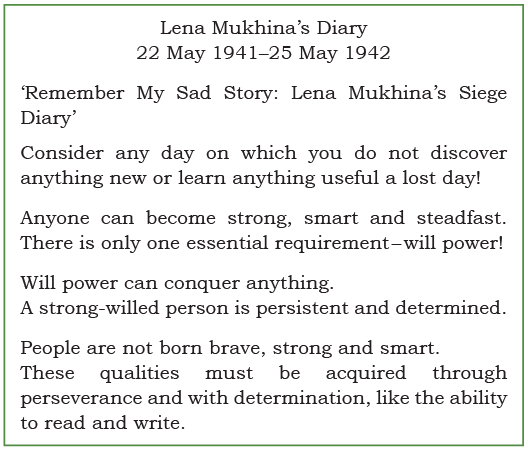
Ans:
(a) Qualities mentioned in the poem are : strong, smart, steadfast, strong will-power, strong willed person, persistent, determined, perseverance, determination.
(b) Discuss with partner
(c) One such person who has some of these qualities is known to me. In my childhood; baby- stealer used to move around. A culprit attempted to kidnap me giving me lolly-pop to be engaged with. As soon as that person saw from a distance that I was being made to sit on a cycle of his; he raised the alarm and started chasing us. He succeeded; caught us. I was handed over to my parents; and the baby stealer, to the police.
Writing
Q1: You have read in the passage ‘A Journal of the Plague Year’ by Daniel Defoe about how the news of plague was reported in those times. What are the means of reporting today?
Ans: e-mail, SMS, twitter, WhatsApp, hike, telegram, Facebook, Instagram, LinkedIn, telegraph, messenger, mobile phone, landline phone, Gmail.
Q2: Write a report on any one of the following – conservation of environment, plantation of trees, waste disposal, water harvesting, and the cleanliness drive under Swachh Bharat Abhiyan carried out in your locality.
Ans: Swachh Bharat Abhiyan is a campaign launched by the Prime Minister Narendra Modi as a nationwide cleanliness campaign. It has been implemented to fulfil the vision and mission of clean India one day. It was launched especially on the birth anniversary of Mahatma Gandhi as he always dreamed and was very keen to make this country a clean country. He had tried for clean India during his time by motivating people through his campaigns and slogans. However it was only partially successful because of the limited involvement of the people of India.
- But after so many years, Swachh Bharat Mission was again started by the Government of India to make the dream of clean India come true till 150th birth anniversary of Mahatma Gandhi. It was started in 2014 on 2nd Oct. on the 145th anniversary of Mahatma Gandhi. It is a big challenge for all the citizens of India. It is only possible if each and every person living in India would understand this campaign, their responsibility and try to join hands to make it successful.
- The mission is promoted by many famous personalities to spread this mission as an awareness programme throughout the country. In order to ensure cleanliness, UP CM Yogi Adityanath has banned chewing of Paan, Gutka and other tobacco products in the government offices across the state since March 2017.
Project
Q1: Work in groups of four. Find out about ‘The Bengal famine of 1943’. It was a major famine in the Bengal province in India during World War II. Collect information on the following points on The Bengal famine of 1943 for the project:(a) Affected area(s)
(b) Reasons of famine
(c) Relief measures
(d) Pictures, films, etc.
Prepare a poster using pictures and highlighting the information you have collected. Give a title of your choice to the poster and display it in the class.
Ans:
The Bengal Famine of 1943
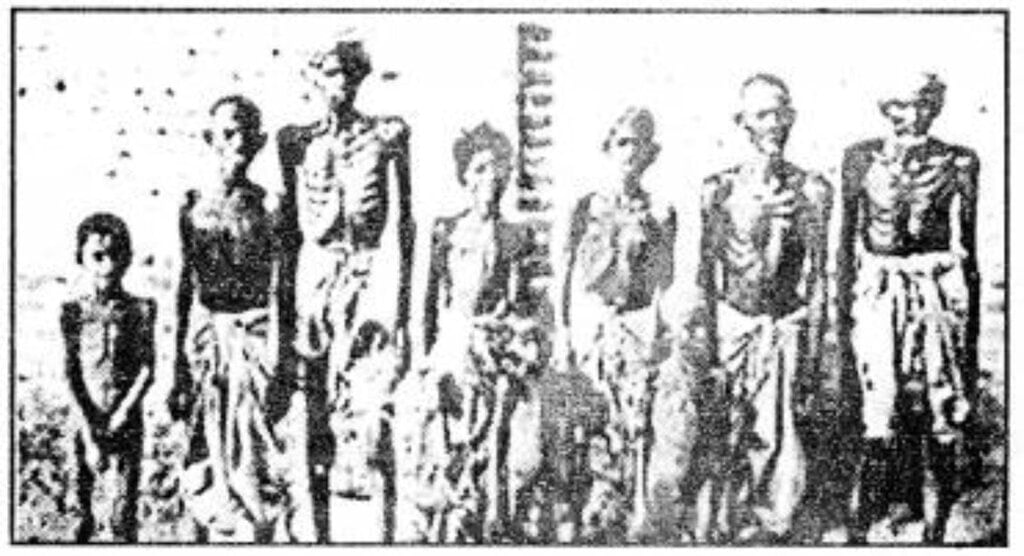
I hate Indians. They are beastly people with a beastly religion. The famine was their own fault for breeding like rabbits – Winston Churchill.
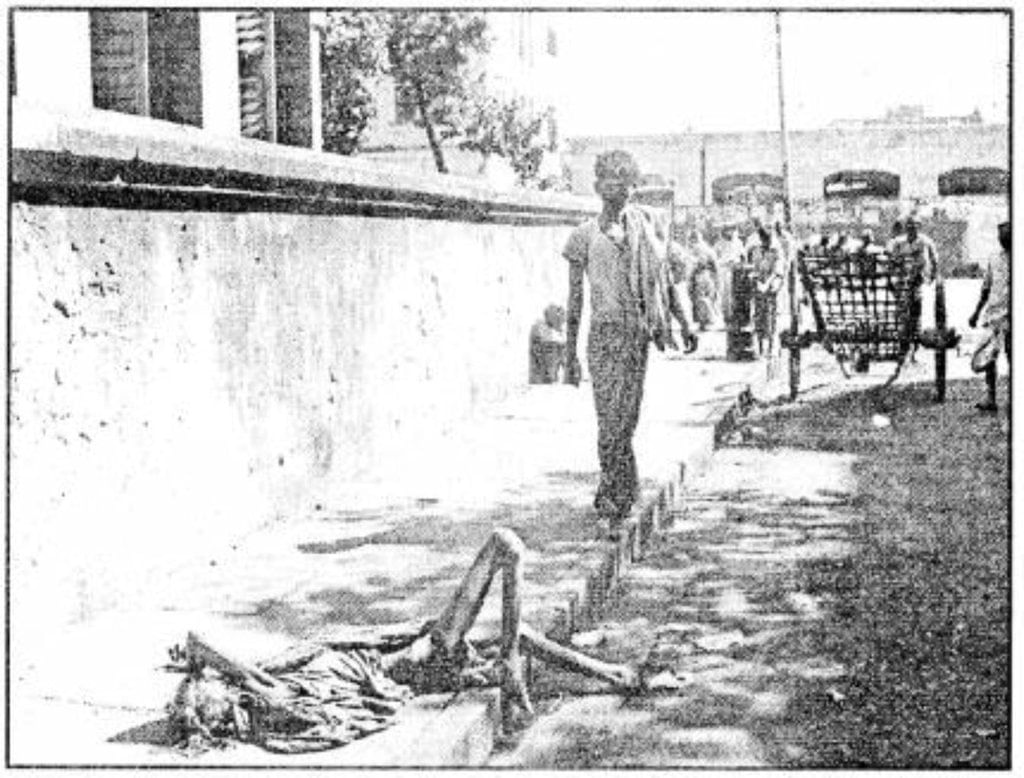
Dead bodies of human beings strewn all over.
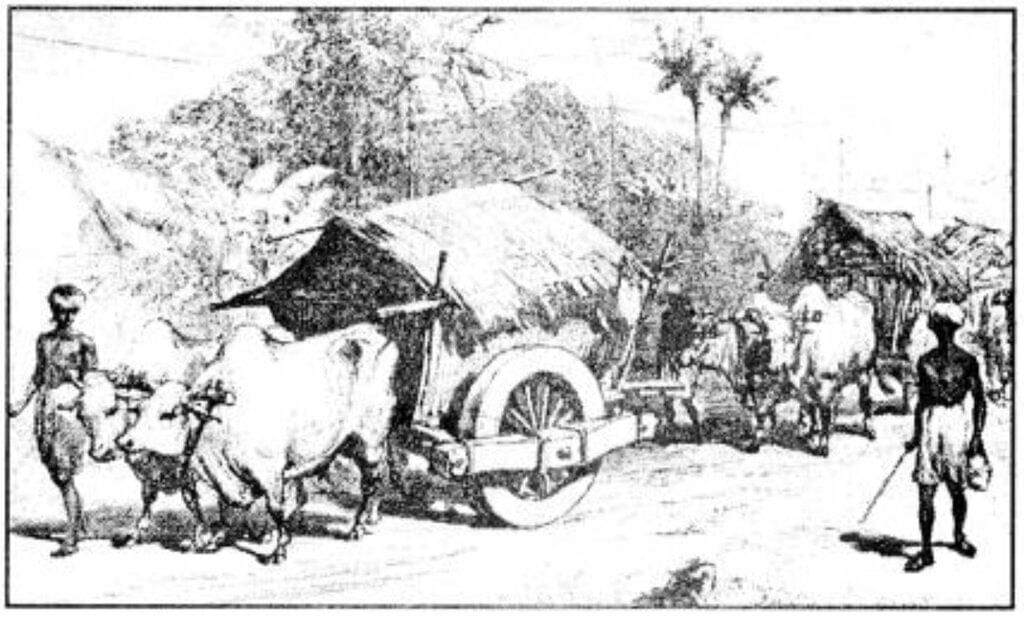
Departure to nearby towns and cities in search of food.
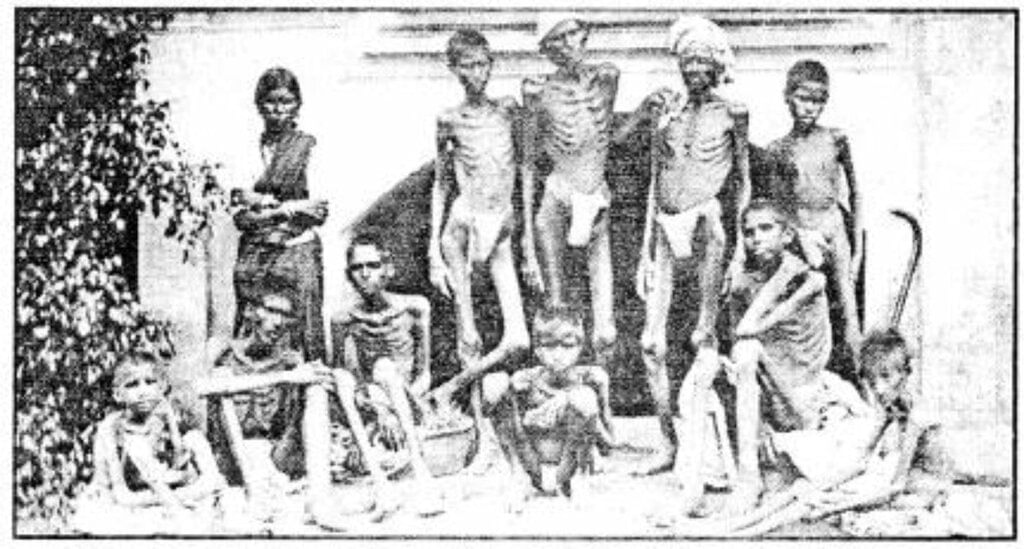
Starvation and malnutrition at its peak. Epidemics kill thousands of people.
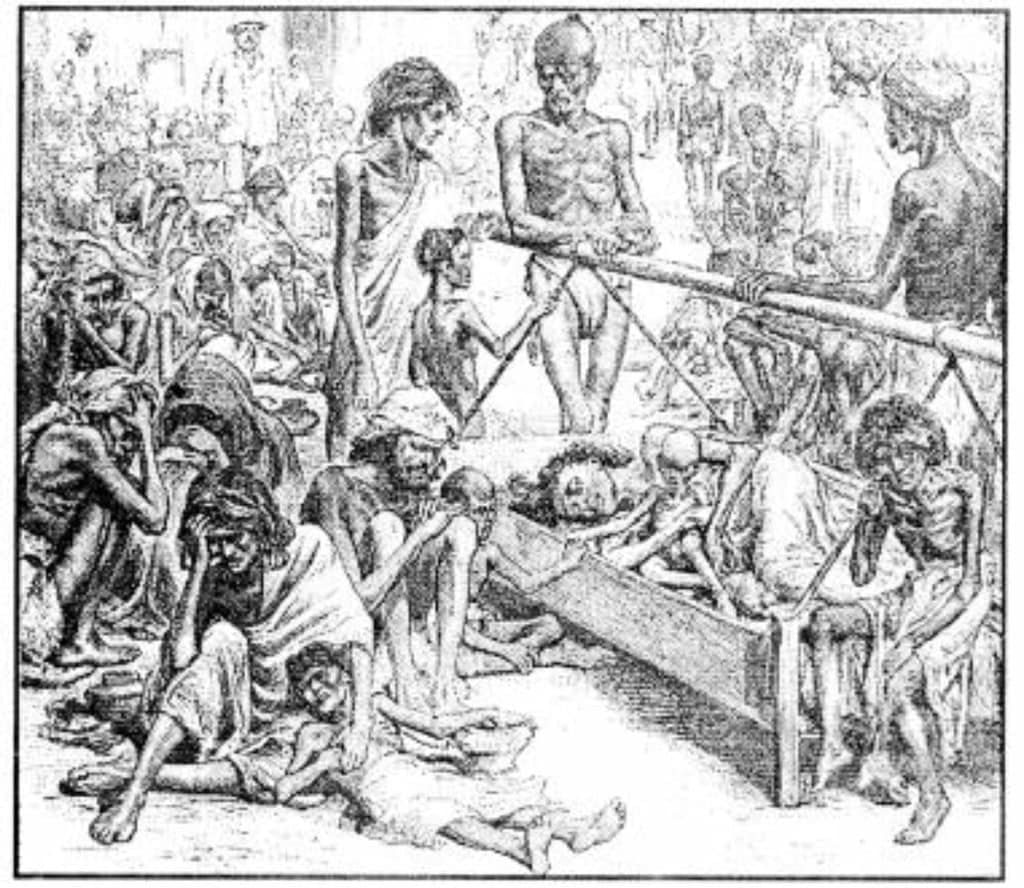
Cholera, typhoid, malaria, small-pox and enteric kill thousands.
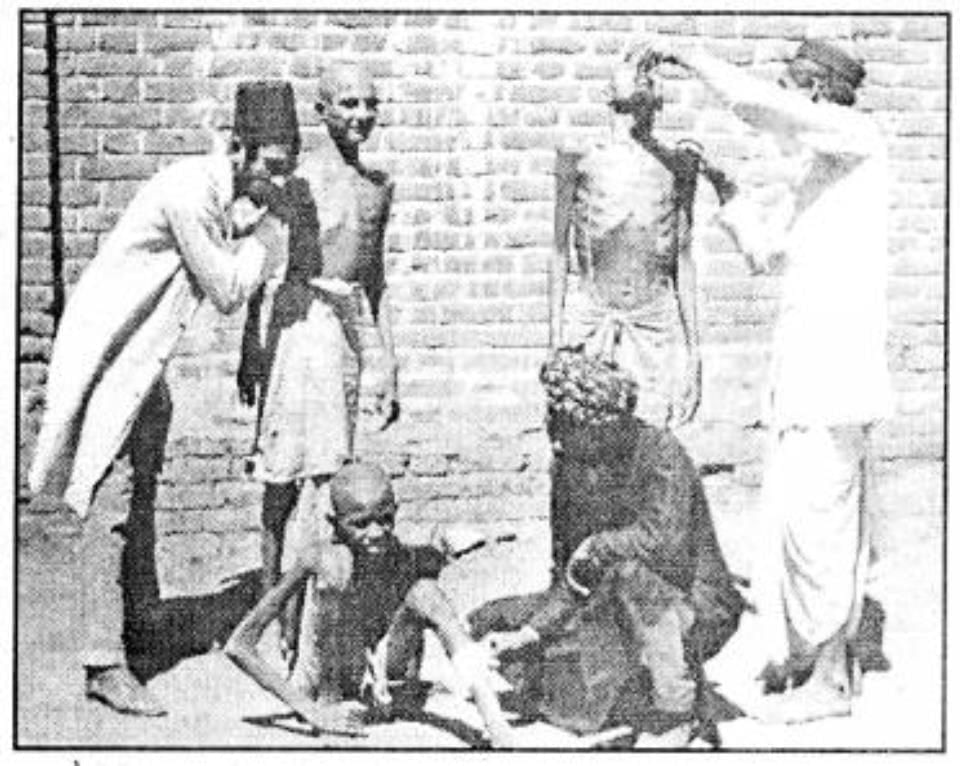
No medical aid availabale to the massess.
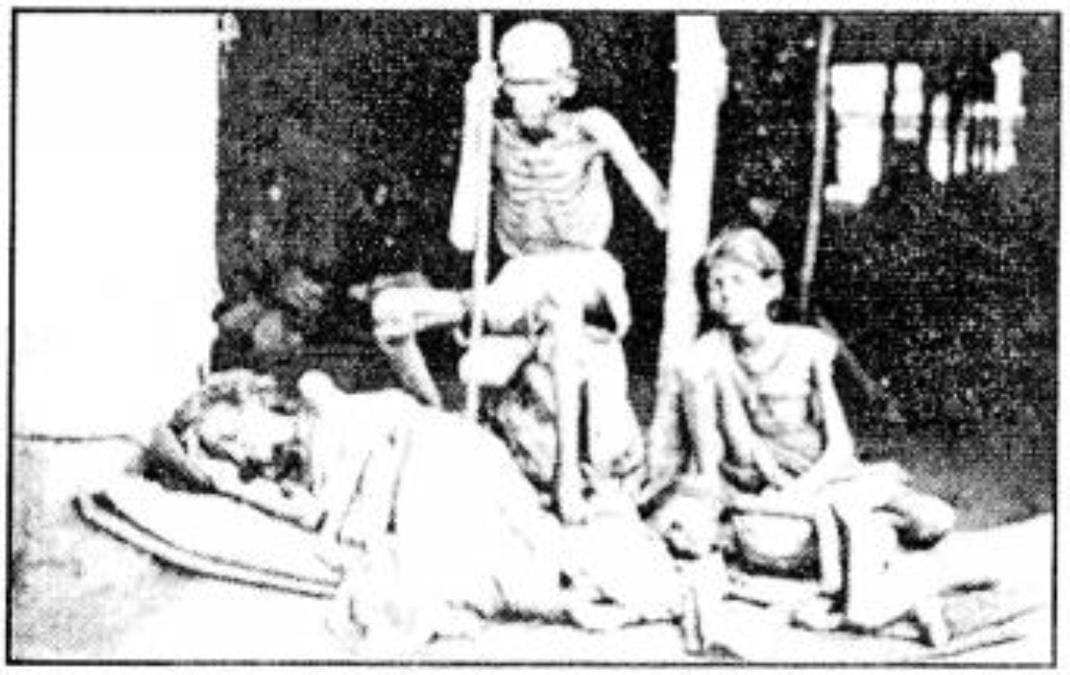
People are compelled to see their near and dear ones dying for want of no medical aid.
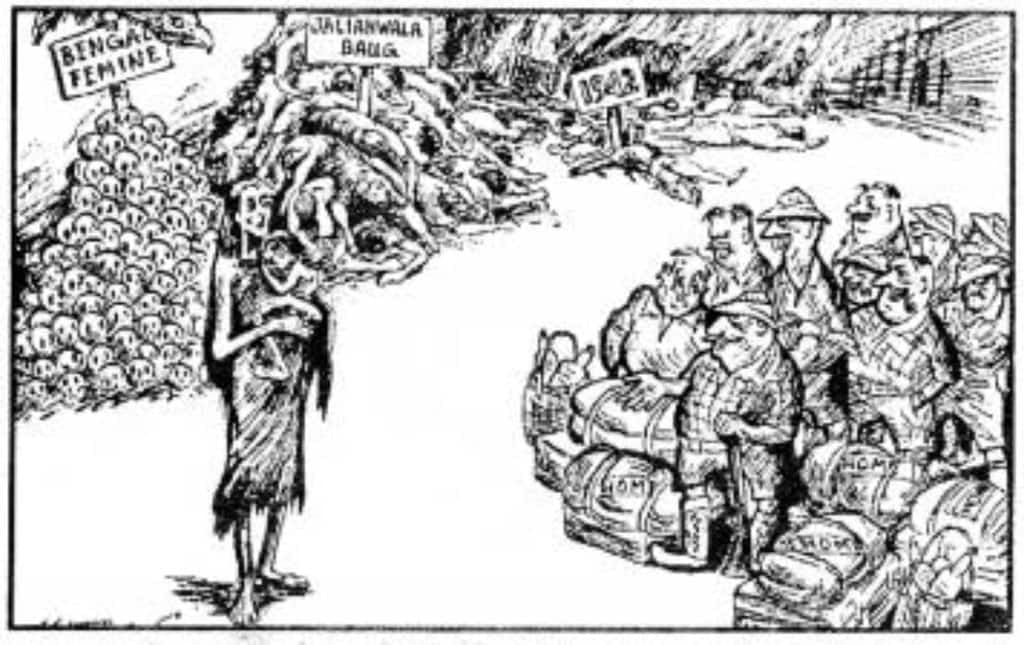
Comparative study of Jallianwala Bagh massacre and Bengal Famine of 1943. Ans:
- “I hate Indians. They are beastly people with a beastly religion. The famine was their own fault for breeding like rabbits.” – Winston Churchill.
- Dead bodies of human beings strewn all over.
- Departure to nearby towns and cities in search of food.
- Starvation and malnutrition at its peak. Epidemics kill thousands of people.
- Cholera, Typhoid, malaria, small-pox and enteric kill thousands.
- No medical aid availabale to the masses.
- People are compelled to see their near and dear ones dying for want of no medical aid.
- Comparative study of Jallianwala Bagh massacre and Bengal Famine of 1943.
Do You Know
One of the three islands in the Juan Fernandez archipelago, 700 km off the Pacific coast of Chile was discovered in the 16th century. Alexander Selkirk, the Scottish sailor was marooned there for four years and four months. He related his experience to Daniel Defoe, who wrote his famous adventure book Robinson Crusoe based on the sailor’s experience, since then the island is known as Robinson Crusoe.
There is a seemingly unbelievable true story of the orphaned bear cub, which was found by Polish troops during World War II who travelled with them through Iraq, Syria, Palestine, Egypt, Italy and Scotland. During the war, Wojciech Narebski and his fellow Polish servicemen had to lift crates of heavy metal artillery. Fortunately for them, one of the soldiers had superhuman strength: Corporal Wojtek, a Syrian brown bear.
When the bear saw that soldiers were struggling, he’d want to help… he’d come over, grab a crate and carry it to the truck. This can be heavy work, even for a bear. When Wojtek (bear) got tired, he would simply stack one crate on top of the other which also helped the soldiers because they didn’t have to lift the crate off the ground. Of course, Corporal Wojtek (bear) got a reward of honey and marmalade. That was his favourite!
You know, things can happen that you wouldn’t normally think are true. Collect some more stories under the title – ‘Sometimes truth is stranger than fiction.’
Ans:
A story under the title
‘Sometimes truth is stranger than fiction.’
My grandmother, being religious by nature, frequently went on a pilgrimage and always opted me to accompany her on the journey. Once she chose my brother instead of me and went. Being displeased with her, I decided not to talk to her. Anyway, her journey had been satisfying and fruitful. When she came back; she approached me to talk. I refused but she insisted. Then she understood everything.
She told me how I had made her previous journey a nightmare due to my stubborn behaviour. I had insisted for an iron rod round shaped wheel and something to run it with. Although she was fed up; she somehow managed it from a stranger’s house and gave me to play with. When I had a nap; she gave it back resumed her onward journey. Thus, I got back to my senses and realised my mistake. My grandmother was not at fault whom I wanted to punish; it was I who was guilty.
|
61 videos|616 docs|69 tests
|
FAQs on From the Diary of Anne Frank NCERT Solutions - English Class 10
| 1. What is the main theme of "From the Diary of Anne Frank"? |  |
| 2. How does Anne Frank's writing style reflect her personality? |  |
| 3. What are some significant events mentioned in Anne Frank's diary? |  |
| 4. How does Anne's perspective on life change throughout her diary? |  |
| 5. What impact has "From the Diary of Anne Frank" had on readers and society? |  |















